Praise for Marxs General
A splendid, gripping biography... Tristram Hunts witty, humane and sharp-eyed portrait of Engels does justice to the complex chemistry of the relationship with Marx, but also sets the junior partner at the center of his own life and intellectual evolution.
Christopher Clark, Standpoint (UK)
Excellent... The partner who willingly played second fiddle to capitalisms Jeremiah receives his due.
Robert Service, The Sunday Times (UK)
A brilliant biography of the contradictory life of one genius who happily sacrificed for another... Marxs General is a terrific account of the nineteenth-century intellectual climate that led to Marxism; its also a memorable depiction of Engels-era Manchester; but most of all its an insightful, important portrait of the most historically important friendship of the nineteenth century. A great book.
Chuck Leddy, The Boston Globe
A splendid biography... Hunts vivid prose captures Engelss idealism, generosity and foibles. That is to say, it makes him recognizably human.
Alan Cate, The Plain Dealer (Cleveland)
Does an excellent job of bringing Engels out from the shadow of the man he served so devotedly.
Alan Ryan, The Literary Review (UK)
Vivid and sharply observed... Tristram Hunt brings to the fore the extraordinary pressures which shaped Engelss personality and made him a virtuoso of the double life. In this novel and refreshing account, Engels is at last freed from the condescension of posterity.
Gareth Stedman Jones, author of Outcast London
ALSO BY TRISTRAM HUNT
Building Jerusalem
MARXS GENERAL
MARXS GENERAL
THE REVOLUTIONARY LIFE OF FRIEDRICH ENGELS
TRISTRAM HUNT
A HOLT PAPERBACK
Metropolitan Books / Henry Holt and Company / New York

Holt Paperbacks
Henry Holt and Company, LLC
Publishers since 1866
175 Fifth Avenue
New York, New York 10010
www.henryholt.com
A Holt Paperback and  are registered trademarks of
are registered trademarks of
Henry Holt and Company, LLC.
Copyright 2009 Tristram Hunt
All rights reserved.
Library of Congress Cataloging-in-Publication Data
Hunt, Tristram, 1974
Marxs general : the revolutionary life of Friedrich Engels / Tristram Hunt.1st ed.
p. cm.
Includes bibliographical references and index.
ISBN: 978-0-8050-9248-6
1. Engels, Friedrich, 18201895. I. Title.
HX274.7.E53H896 2009
335.4092dc22 |
[B] | 2009003845 |
Henry Holt books are available for special promotions and premiums. For details contact: Director, Special Markets.
Originally published in hardcover in 2009 by Metropolitan Books
First Holt Paperbacks Edition 2010
Designed by Kelly S. Too
Printed in the United States of America
1 3 5 7 9 10 8 6 4 2
To D.W.H.H.
CONTENTS
ILLUSTRATIONS
1. Portrait of Friedrich and Elise Engels (Engels Haus Museum, Wuppertal)
2. Barmen panorama (Engels Haus Museum, Wuppertal)
3. Georg Wilhelm Friedrich Hegel lecturing, 1828 (lithograph by Franz Kugler / AKG, London)
4. Ludwig Feuerbach (AKG, London)
5. Karl Marx as a student (RIA, Novosti)
6. Friedrich Engels self-portrait, 1839 (Topfoto)
7. John Marshall & Sons cotton design (Bridgeman Art Library, London / Whitworth Gallery, Manchester)
8. Ermen & Engels cotton reels (Peoples History Museum, Manchester)
9. Ermen & Engels cotton mill, Weaste, Salford (Working Class Movement Library, Salford)
10. Friedrich Engels photo portrait, age twenty (Peoples History Museum, Manchester)
11. Boy cleaning cotton mill (Art Archive, London)
12. Manchester Piccadilly postcard (Mary Evans Picture Library, London)
13. Dover House / Albert Club (Working Class Movement Library, Salford)
14. Chethams Library desk (Chethams Library, Manchester)
15. Dresden riots, 1848 (Bridgeman Art Library, London / Bibliothque Nationale, Paris)
16. Berlin riots, 1848 (Bridgeman Art Library, London / Archives Charmet)
17. Cheshire Hunt (painting by Henry Calvert / Tatton Park / Cheshire County Council / The National Trust)
18. Manchester Town Hall vestibule (Manchester City Council / Mike Pilkington photograph)
19. Engels, Marx, and Marxs daughters group portrait (Topfoto)
20. Laura Marx (Bridgeman Art Library, London / Roger-Viollet, Paris)
21. Lizzy Burns (Working Class Movement Library, Salford)
22. Eleanor Marx (Jewish Chronicle Archive London/ HIP / Topfoto)
23. Engels photo portrait (David King Collection, London)
24. Study at 122 Regents Park Road (photograph by Barney Cokeliss)
25. View over London from Hampstead Heath (painting by John Ritchie / Bridgeman Art Library / Private Collection)
26. The Paris Commune (Bridgeman Art Library, London / Bibliothque Nationale, Paris)
27. The Paris Commune (Bridgeman Art Library, London / Muse de la Ville de Paris / Muse Carnavalet / Archives Charmet, Paris)
28. The London Dock Strike (Bridgeman Art Library, London / private collection)
29. The London Dock Strike (Bridgeman Art Library, London / private collection)
30. Poster in Havana, Cuba (Bridgeman Art Library, London / Roger-Viollet, Paris)
31. Mural in Addis Ababa, Ethiopia (photograph by Franoise Demulder / Bridgeman Art Library, London / Roger-Viollet, Paris)
MARXS GENERAL
PREFACE
On 30 June 1869, Friedrich Engels, a Manchester mill owner, gave up his job in the family business after nearly twenty years. Ready to greet him on his return to his small cottage in the Chorlton suburbs were his lover Lizzy Burns and houseguest Eleanor Marx, daughter of his old friend Karl. I was with Engels when he reached the end of his forced labour and I saw what he must have gone through all those years, Eleanor later wrote of Engelss final day at work. I shall never forget the triumph with which he exclaimed for the last time! as he put on his boots in the morning to go to his office. A few hours later we were standing at the gate waiting for him. We saw him coming over the little field opposite the house where he lived. He was swinging his stick in the air and singing, his face beaming. Then we set the table for a celebration and drank champagne and were happy.
Friedrich Engels was a textile magnate and foxhunter, a member of the Manchester Royal Exchange, and president of the citys Schiller Institute. He was a raffish, high-living, heavy-drinking devotee of the good things in life: lobster salad, Chteau Margaux, Pilsener beer, and expensive women. But Engels also for forty years funded Karl Marx, looked after his children, soothed his furies, and provided one half of historys most celebrated ideological partnership as coauthor of The CommunistManifesto and cofounder of what would come to be known as Marxism. Over the course of the twentieth century, from Chairman Maos China to the Stasi state of the GDR, from the anti-imperial struggle in Africa to the Soviet Union itself, various manifestations of this compelling philosophy would cast their shadow over a full third of the human race. And as often as not, the leaders of the socialist world would look first to Engels rather than Marx to explain their policies, justify their excesses, and shore up their regimes. Interpreted and misinterpreted, quoted and misquoted, Friedrich Engelsthe frock-coated Victorian cotton lordbecame one of the central architects of global communism.


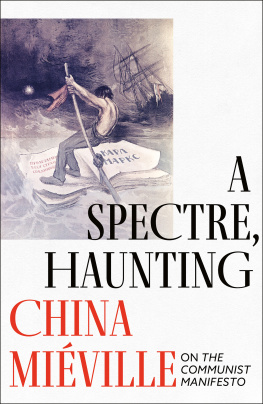
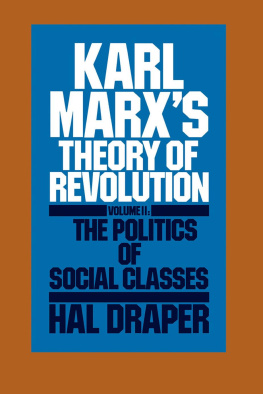
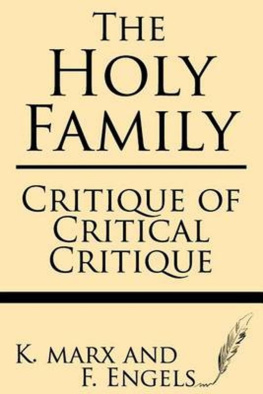

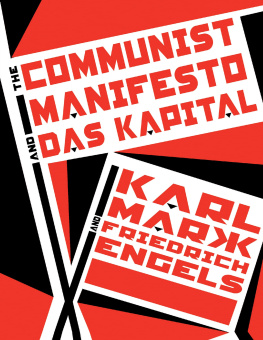
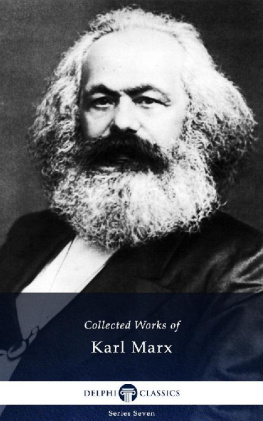

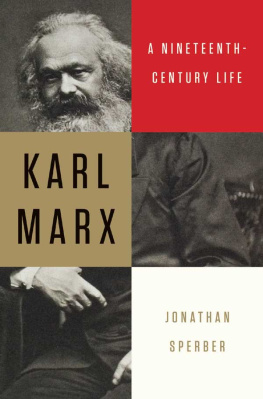
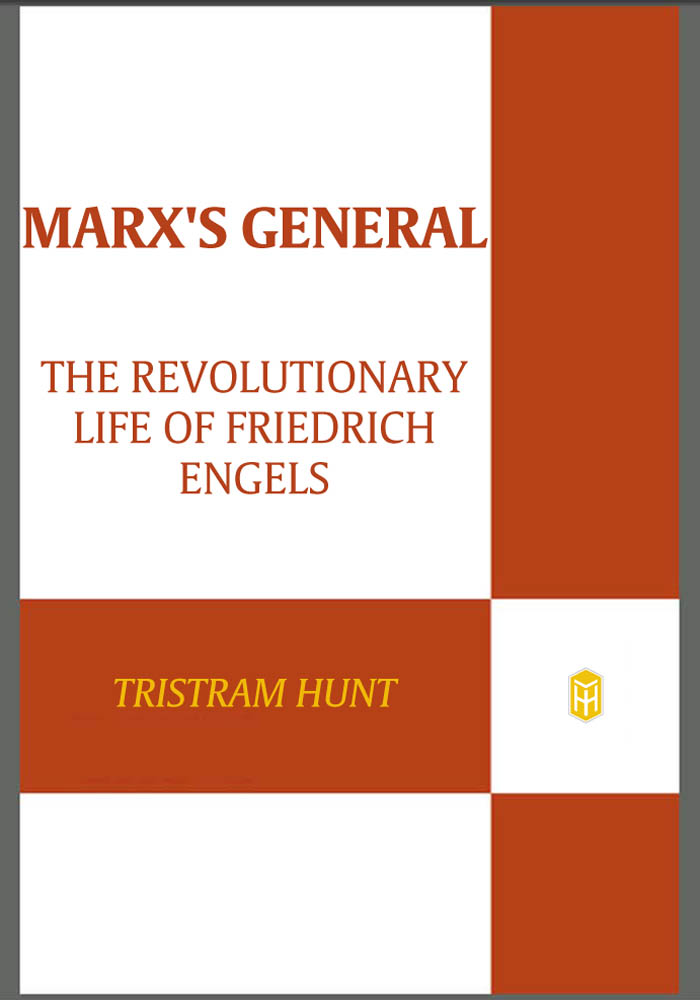

 are registered trademarks of
are registered trademarks of